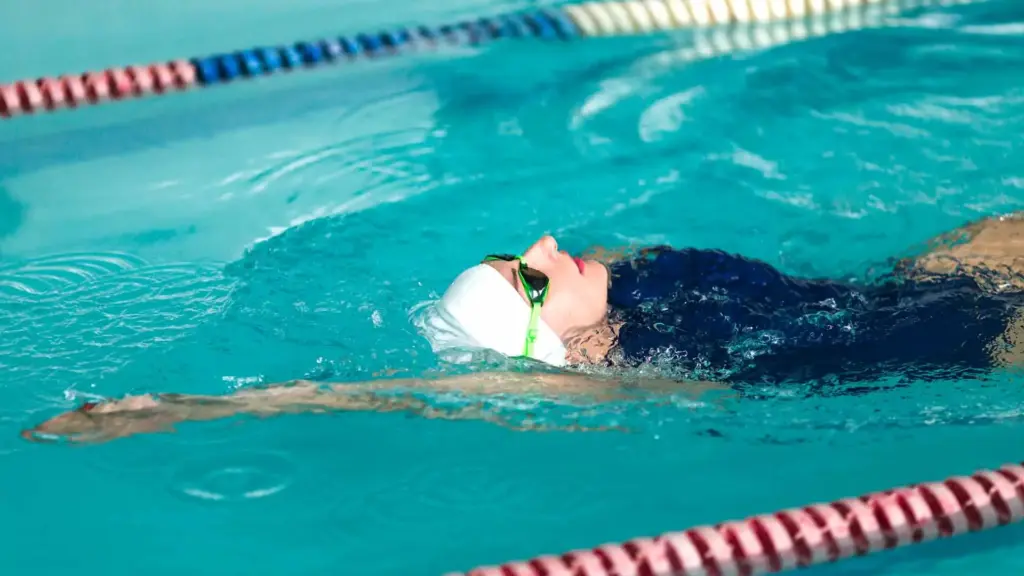Swimming is often touted as one of the most effective ways to lose weight, build fitness, and improve overall health. For many people, the idea of lapping up laps in a pool feels achievable, enjoyable, and sustainable. But how effective is swimming for weight loss in practice, and what should you know before diving in? In this post, we’ll explore the science behind swimming as a weight-loss tool, practical tips to maximise results, and how enrolling in swimming lessons in preston can help you get there more safely and efficiently.
How swimming burns calories and reshapes body composition
Swimming is a full-body, low-impact exercise that engages almost every major muscle group. When you swim, you use your arms, legs, core, and even your back and shoulders, which translates to a higher overall energy expenditure compared with many land-based activities of similar perceived effort. The buoyancy of water reduces joint stress, making swimming accessible to people with injuries or mobility issues who still want a high-quality workout.
Calorie burn depends on several factors, including your weight, swimming speed, stroke style, and duration. On average, a person weighing around 70 kg (154 lb) might burn roughly 350–500 calories in 30 minutes of moderate swimming, while a more vigorous effort can push this higher. For heavier individuals or those who swim with greater intensity, the numbers naturally increase. Over time, consistent swimming can help create a sustained caloric deficit, which is essential for weight loss.
But weight loss isn’t just about the scale. Swimming also improves lean muscle mass and metabolic rate. More muscle tissue raises resting energy expenditure, meaning you burn more calories even when you’re not exercising. Additionally, swimming supports cardiovascular health, endurance, and flexibility, all of which contribute to a more active lifestyle that reinforces weight-management goals.
The role of consistency and progression
Any effective weight-loss plan hinges on consistency. Short, irregular bursts of swimming are less impactful than a steady routine. For best results, aim for a realistic schedule that fits your life, whether that’s 3–4 sessions per week or more modestly, 2 sessions with optional extra workouts on weekends.
Progression matters, too. If you’re just starting out, begin with shorter sessions, 20–30 minutes, and gradually increase both duration and intensity. You can progress by:
- Increasing distance covered in the pool
- Switching to faster strokes or incorporating intervals
- Adding drills that build technique and efficiency
- Incorporating gentle resistance with pull buoys or swim paddles as appropriate (under guidance)
As you improve technique and endurance, you’ll swim more efficiently, which often translates to more calories burned per minute and less fatigue.
Stroke selection and technique for maximum efficiency
Different strokes offer varying levels of efficiency and calorie burn. Freestyle (crawl) is typically the most efficient when it comes to speed and endurance, making it a common choice for longer workouts. Breaststroke can be highly effective for a controlled, lower-impact session and can be excellent for beginners or those focusing on form. Backstroke is a solid option for developing posterior chain strength and balance.
Technique matters as much as intensity. Poor form can waste energy and increase the risk of injury. If you’re new to swimming or returning after a break, consider taking swimming lessons preston to refresh your technique, build confidence in the water, and set a solid foundation for safe and effective workouts.
Nutritional considerations to support swimming for weight loss
Exercise alone rarely delivers long-term weight loss without attention to nutrition. To optimise results from swimming, pair your workouts with sensible nutrition:
- Focus on a balanced diet rich in lean proteins, whole grains, fruits, vegetables, and healthy fats.
- Hydrate adequately, as swimming can be deceptively dehydrating during longer sessions.
- Time meals around workouts to fuel performance and recovery; a light snack before swimming and a protein-rich meal afterwards can help.
Avoid crash diets or extreme restrictions, which can undermine energy levels and recovery, especially when you’re swimming regularly.
Practical tips to get started
If you’re considering swimming as a weight-loss strategy, here are practical steps to begin:
- Check our facilities that offer beginner-friendly times.
- Sign up for a block of swimming lessons at Swim Central Preston if you’re new to the sport or want to refine your technique. Skilled instructors can tailor drills to your level and goals.
- Set SMART goals: Specific, Measurable, Achievable, Relevant, Time-bound.
- Keep a simple workout tracker: distance swum, time, strokes, and perceived exertion.
- Mix in interval training: short, intense bursts followed by recovery periods can boost calorie burn and cardiovascular fitness.
- Include rest days to allow muscles to recover and reduce injury risk.
Addressing common concerns
- Is swimming good for weight loss if you’re overweight? Yes. Low-impact nature makes it accessible, and water resistance provides consistent muscular work without excessive joint strain.
- Can you lose fat in specific areas (spot reduction) with swimming? Spot reduction is a myth; weight loss tends to be systemic. Focus on overall fitness and body composition improvements.
- Do I need to be a strong swimmer to gain benefits? Not at first. You’ll gain benefits from regular sessions, even as you develop technique.
Final thoughts
Swimming is a versatile, enjoyable, and effective way to support weight loss, especially when paired with consistent training and mindful nutrition. The buoyancy of water makes it gentler on joints, which can help sustain long-term adherence. By choosing a suitable stroke, prioritising technique, and committing to a regular schedule, you can achieve meaningful changes in body composition and health.
If you’re in the Preston area, enrolling in our swimming lessons could be a wise first step to build confidence and ensure your workouts are safe and effective. Remember, the best weight-loss plan is one you can maintain long-term, and swimming offers a refreshing, scalable option to keep you motivated on your journey.

